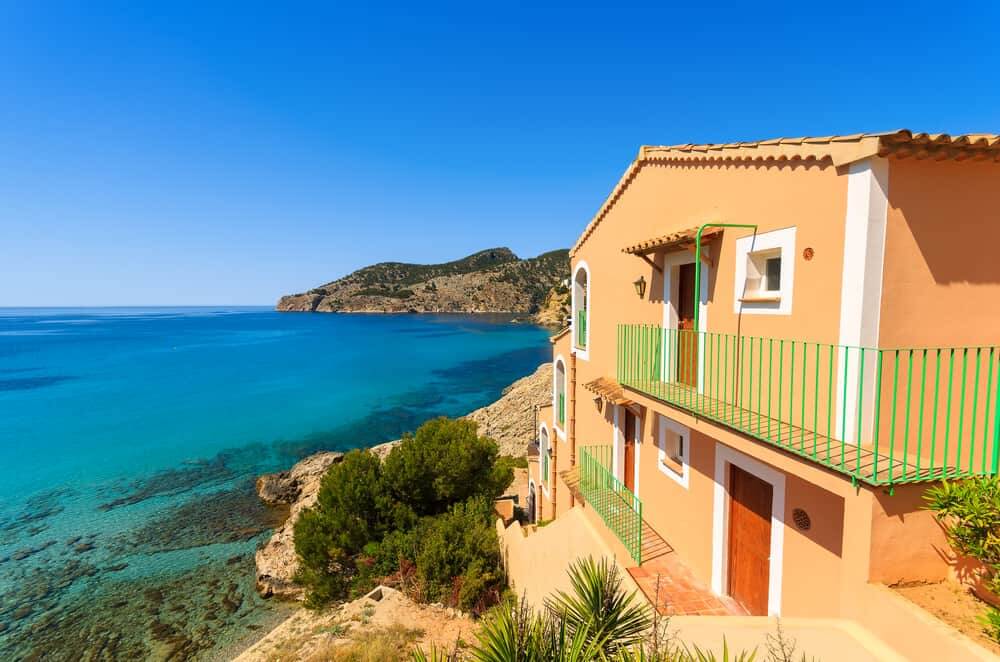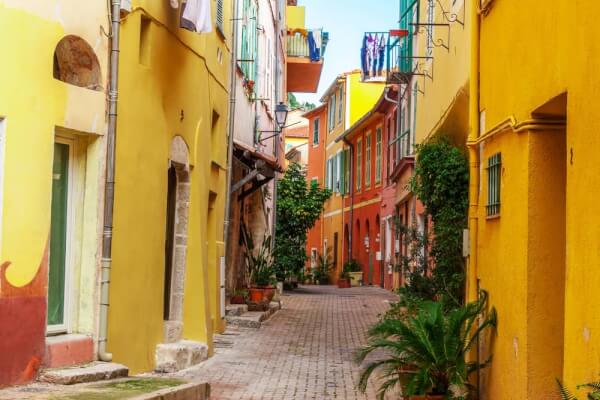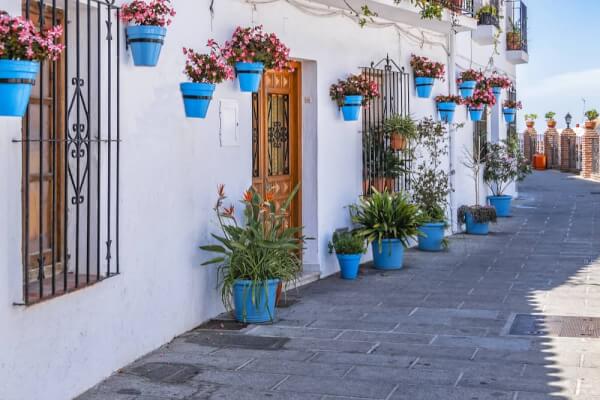Buying property in Ireland as a foreigner
The essential guide to buying property in Ireland as a foreigner, including property prices, where to buy, mortgages, fees and more.

Sun, sea and sangria make Spain a popular holiday destination - and also a hot choice for those looking to study, work or retire abroad.
If you’re looking to buy a property in Spain, one of the first things you’ll need to know is how to get a mortgage. We’ve put together a full guide to getting a mortgage in Spain, whether you’re a resident or a foreign citizen. We’ll cover fees, costs and how to apply, plus how to send money internationally for less using Wise.
So, let’s get started.
There are no laws or rules preventing foreign citizens buying property in Spain¹, but how easy is it to get a mortgage as a non-resident?
The good news is that many Spanish mortgage providers will lend to foreigners, and there aren’t usually any restrictions on nationality (or purchase price)¹. However, it depends on the product. Some mortgages are aimed at buyers from particular countries, or for properties in particular regions.
However, there are a couple of important distinctions to be aware of. The first relates to the loan-to-value (LTV) ratio - essentially, how much the provider is prepared to lend you, compared to the value of the property.
Spanish residents can usually borrow up to 80% of the property’s value, as assessed by the provider. Non-residents may only be able to get 60-70%, although it depends on the type of mortgage you take out².
If you’re looking at getting a buy to let mortgage in Spain, you can expect to pay a higher deposit³, as they’re seen as more of a risk by lenders.
What’s more, non-residents may have to pay higher interest rates than Spanish citizens. The terms may be different, with non-resident mortgages usually having fixed rates and a maximum length of 20 years².
There may also be a few differences in the criteria² for applying for the mortgage. Getting a mortgage in Spain for EU citizens may be a little easier than for those applying from outside of the EU.
Now that the UK has left the EU, is it more difficult for UK citizens and expats to get a mortgage in Spain?
You’ll be relieved to know that you still have the right to buy property in Spain after Brexit (this right is not limited to EU citizens) and that you should still be able to get a mortgage.
You’ll need to provide proof of income and a good credit score⁴ and, as above, you can expect to get a lower LTV than Spanish residents.
The types of mortgages offered in Spain will be similar to those in the UK, but you may also be able to find products specifically aimed at expats. You can get a mortgage from a bank, savings bank (caja de Ahorros) or international bank, or through a mortgage broker.
Interest rates for Spanish mortgages are linked to the yearly European interbank offered rate, which is known as Euribor¹. They’ll usually have a margin added on top. As of August 2021, the average mortgage interest rate was 2.48%⁶. You can use a Spanish mortgage calculator like this one from BBVA bank to work out how much you can borrow and how much your monthly repayments will be.
You can find both variable and fixed rate mortgages in Spain, although variable are more common. With these, repayments vary according to the European central bank rate. There’s also a mixed mortgage, which combines an initial fixed rate period (i.e. 5 years) with a variable rate after this point. Interest-only mortgages don’t really exist in Spain.
The average mortgage term length is 20-25 years, although it depends on your age.
Just like in the UK, Spanish lenders will assess your mortgage application based on your earnings and your credit history. They also take into account the type of property you’re planning to buy, with holiday homes considered to be a riskier prospect than main residences.
When you buy a property in Spain, you can expect to pay around 10-15%¹ of the total purchase amount in transaction costs.
Some of these fees relate to the mortgage. Here’s a quick look at some of the main costs involved:
This fee is for a Spanish lender to send one of their appointed valuation companies to the property to complete a valuation. The total amount varies depending on the value of the property, so could cost you anything from a few hundred euros to over a thousand.
Before a lender will grant a mortgage, it will need to see something called the nota simple. This is the land registry filing, which confirms the property’s legal status and that it doesn’t have any debts attached to it. You’ll also need this document as a buyer, and it costs around €10.
This is a fixed fee for setting up the mortgage. It can be anywhere from 0.5% to 2% of the mortgage amount, but the average charge is 1%.
You may also have to pay the following when taking out a Spanish mortgage:
Notary fees - the notary involved in the sale will charge a fee based on the number of clauses in the mortgage deed
Deed arrangement fees - this is payable to the gestoria, the company that arranges for the deeds to be entered correctly into the local land registry. The lender usually uses their own gestoria, and the fee shouldn’t be more than a couple of hundred euros.
Early cancellation fees - if you get a mortgage and then back out because you’ve found a cheaper deal, be careful that you don’t get charged an early cancellation fee. This can be as much as 1% of the value of the mortgage.
If you’re buying your Spanish property while still in the UK, you’ll need to find a cost-effective way to pay the fees. This means sending the mortgage arrangement fee, brokers costs and other charges internationally.
Banks usually charge high international transfer fees, plus they add a margin on top of the exchange rate. This makes your exchange more expensive than it needs to be.
But luckily, there’s a better way. Send money from the UK to Spain using Wise, and you’ll only pay a tiny transparent transfer fee. Better still, you’ll always get the real, mid-market exchange rate - with no margin added on top.
International payments with Wise are fast, fully secureand reliable, giving you the peace of mind that your fees will be paid on time and your Spanish property purchase will proceed smoothly.
Now, let’s take a look at what’s actually involved in applying for a mortgage in Spain. In this section, we’ll look at the documentation you’ll need, the major banks offering mortgages in Spain and whether or not you should use a broker.
When you get a mortgage in Spain, you can apply directly with the bank or provider yourself. But there’s also the option of using a mortgage broker.
A broker can be useful for a couple of reasons. Firstly, you may find it easier as a British buyer to work with an English-speaking broker who understands the Spanish market. They can help you shop around for the best deals, and guide you through the arrangement process.
However, you’ll need to research and compare brokers before choosing one. Take recommendations from friends or family when choosing a mortgage agent, or ask to be put in touch with previous customers for a reference.
Some brokers have high fees, while only giving you access to a limited range of mortgages. While some brokers may charge upfront administration or application fees, you should be wary in this instance - as there’s always the risk of fraud.
The other option is to go directly to the bank itself. The main benefit of this is that you won’t have to pay brokers fees on top of all the other fees involved with getting a mortgage and buying a property. Brokers typically charge around 0.5% to 2% in fees for a successful mortgage.
However, you’ll need to put in the legwork of searching the market, and have a decent grasp of Spanish so that you can understand all the terms, rates and conditions. A broker may also be able to find you a cheaper deal than you’d find on your own, which could make their fee worth it.
If you plan to go direct, here are some of the major banks offering mortgages to non-residents:
Of course, this is far from an exhaustive list, so you’ll need to shop around to compare all the mortgage providers that meet your needs.
Here’s what you’ll need to have ready before you can apply for a Spanish mortgage:
A key thing to remember is that the bank may require your documents to be translated into Spanish². The translations must be carried out officially, and something called an Apostille attached to verify that the document and its translation is legitimate.
Once you’ve provided the required documents and information, your application will be processed and the bank will make you a mortgage offer.
As long as you have your NIE and all other documents, there’s no reason in theory that you can’t apply for your Spanish mortgage while still in the UK. Many banks lend to non-residents, and the application process is often started online¹⁰ or over the phone.
If you’re looking into getting a mortgage in Spain from the UK, you could find it much easier to use a mortgage broker. Choose one that speaks English but is based in Spain, and let them do the hard work of comparing the market and managing the application process on your behalf.
Bear in mind though that you may still have to make some in-person visits to Spain. For example, to get your NIE, open a Spanish bank account or present original mortgage documents in person.
It can vary, but you can expect the process of getting a mortgage approved to take between 6-8 weeks¹⁰. Make sure you have all your documentation ready, to avoid unnecessary delays.
Although arranging a mortgage in Spain will be a slightly different experience to borrowing for a property purchase in the UK, it’s a path well trodden by generations of sun seekers.
After reading this guide, you’re one step closer to kicking back in an unspoiled Andalusian mountain-top villa, or being serenaded by Spanish guitar in Seville. So, start exploring your mortgage options now - you can thank us with a glass of sangria later.
Sources used for this article:
Sources checked on 9-Nov-2021.
*Please see terms of use and product availability for your region or visit Wise fees and pricing for the most up to date pricing and fee information.
This publication is provided for general information purposes and does not constitute legal, tax or other professional advice from Wise Payments Limited or its subsidiaries and its affiliates, and it is not intended as a substitute for obtaining advice from a financial advisor or any other professional.
We make no representations, warranties or guarantees, whether expressed or implied, that the content in the publication is accurate, complete or up to date.

The essential guide to buying property in Ireland as a foreigner, including property prices, where to buy, mortgages, fees and more.

Everything you need to know to buy property in Portugal as a foreigner from the UK. Read about where and how to buy property, average house prices, and more.

The essential guide to help you buy property in France as a foreigner coming from the UK – from fees and taxes to average house prices.

The essential guide to buying property in Italy as a foreigner, including average prices, best places to buy and key legal information.

Want to buy property in Spain as a foreigner from the UK? Read our guide on buying property in Spain, including average prices, legal info and more.

The essential guide to buying property in Turkey as a foreigner, including property prices, where to buy, mortgages, fees and more.